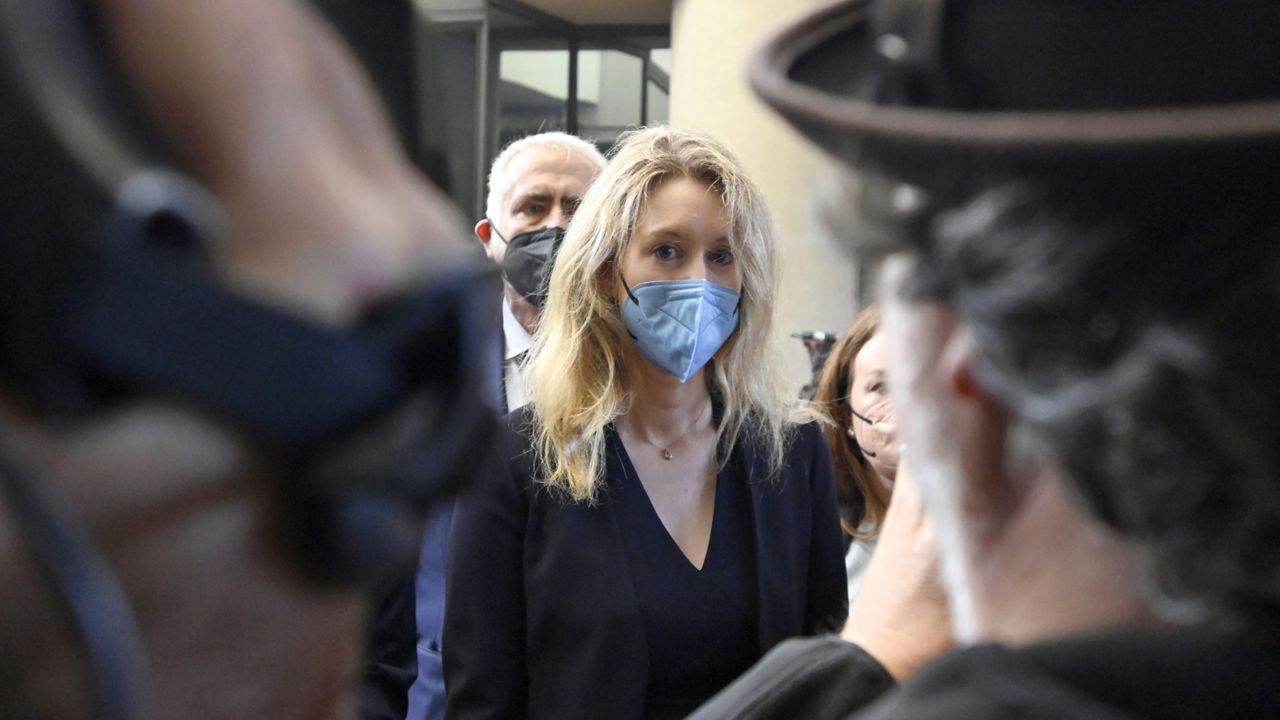Opening statements began Wednesday in the highly anticipated trial of Theranos founder Elizabeth Holmes, the fallen tech star accused of duping financial backers, customers and patients into believing that her startup was about to revolutionize medicine.
Holmes arrived at the courthouse amid a media scrum. If convicted by a jury, she could be sentenced to 20 years in prison — a stunning reversal of fortune for an entrepreneur whose wealth once was pegged at $4.5 billion. That amount represented her 50% stake in Theranos, a Palo Alto, California, biotech startup she founded in 2003 after dropping out of Stanford University at the age of 19.
Holmes' lawyers are expected to take a multi-pronged approach in her defense, and argued early Wednesday that the 37-year-old did not intend to defraud her investors and clients during her tenure at Theranos.
“Elizabeth Holmes did not go to work every day intending to lie, cheat and steal," said attorney Lance Wade, per the Washington Post. "The government would have you believe her company, her entire life is a fraud. That is wrong. That is not true."
Theranos — a name derived from the words “therapy” and “diagnosis”— claimed to be perfecting a technology that could test for hundreds of diseases by extracting just a few drops of blood from a quick finger prick done at “wellness centers” across the U.S.
Holmes promised the samples would be tested in a specially designed machine named after famed inventor Thomas Edison. In her spiel, they would cost a fraction of traditional tests that require a doctor’s referral and vials of drawn blood before lab processing that could take days to deliver results.
Holmes recruited an impressive board and raised nearly $900 million before Theranos’ collapse, triggered by a series of explosive Wall Street Journal articles that revealed serious flaws in the company’s technology.
The Journal articles spurred an inquiry by the U.S. Food and Drug Administration and a civil lawsuit filed by the Securities and Exchange Commission. The SEC case resulted in a $500,000 settlement without an admission of wrongdoing, but still proved to be the end of Theranos, which shut down in 2018.
“Failure is not a crime,” Wade later said of Holmes' efforts. “Trying your hardest and coming up short is not a crime. By the time this trial is over you will see that the villain the government just presented is actually a living, breathing human being who did her very best each and every day. And she is innocent.”
Some of the company’s wealthy investors, as well as former board members, are expected to testify during the trial presided over by U.S. District Judge Edward Davila.
Holmes may take the witness stand, based on court documents filed leading up to the trial. If she does, her lawyers have indicated in recently unsealed filings that she will testify that some of her statements and actions while running Theranos were the result of “intimate partner abuse” inflicted by the company’s chief operating officer and her secret lover, Ramesh “Sunny” Balwani, who faces multiple fraud charges in a separate trial scheduled to begin next year.
Balwani’s lawyer has denied Holmes’ allegations.
The Associated Press contributed to this report.
